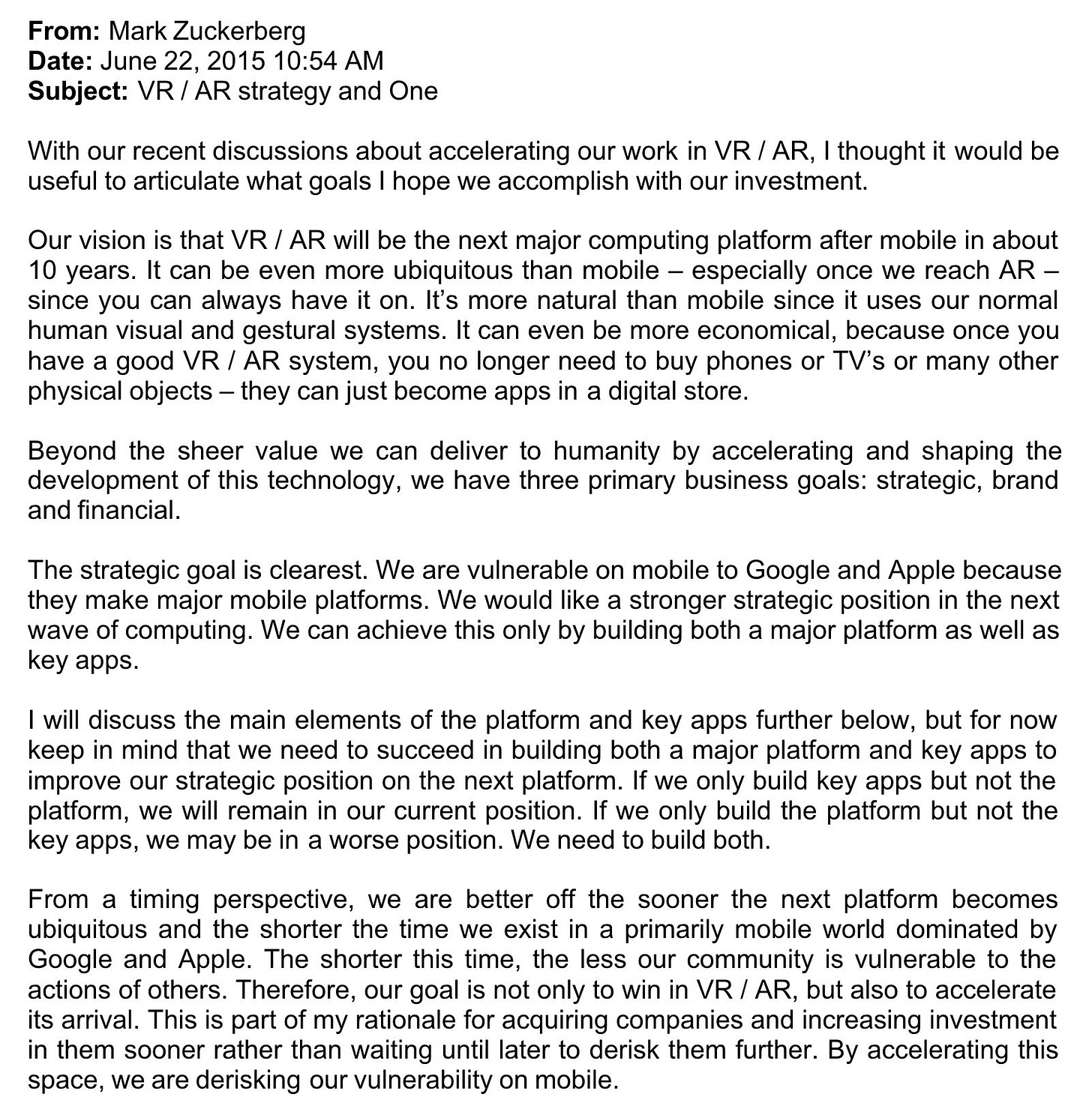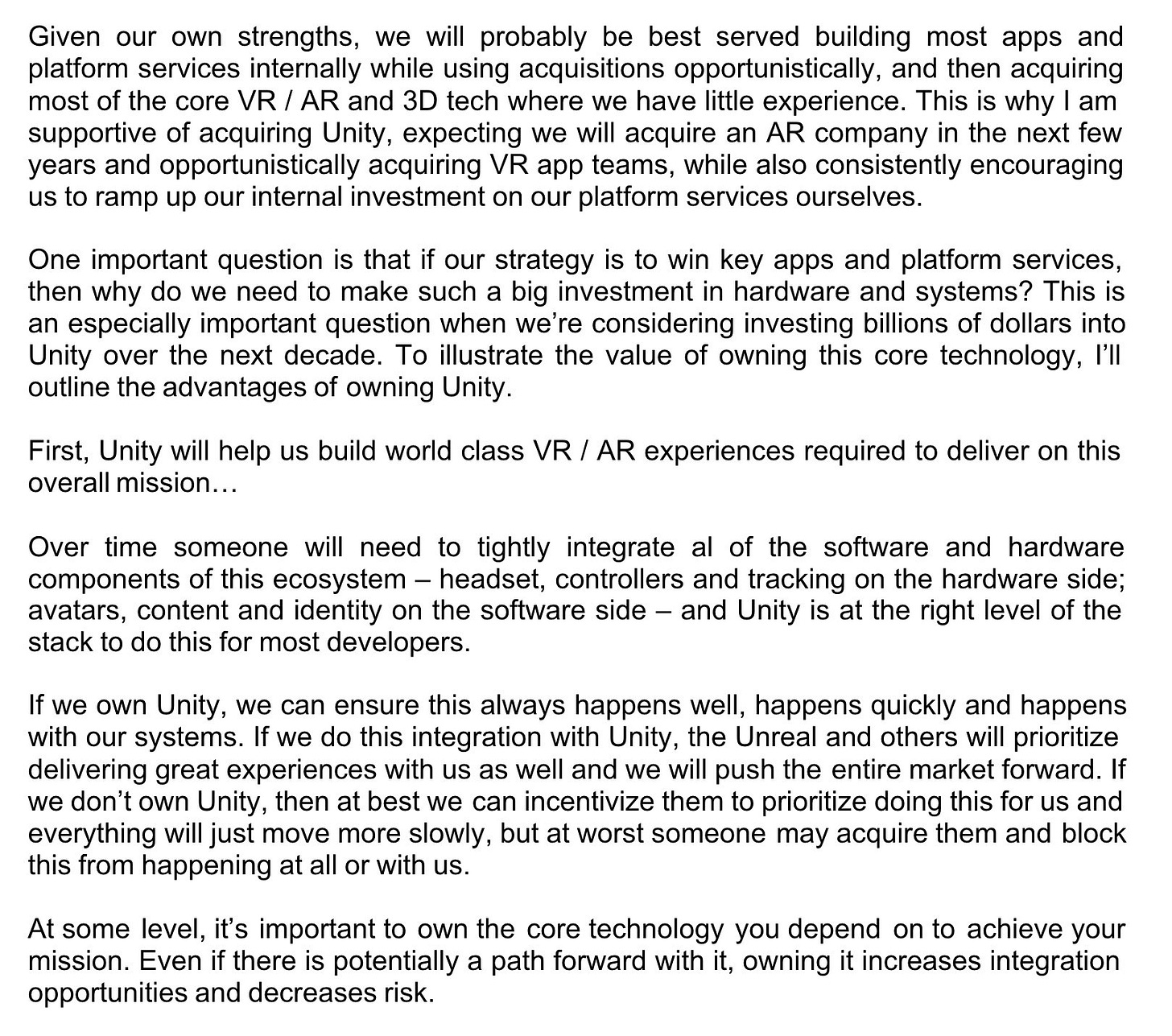The Long Game 130: The "Science-Based" Scam, Mindfulness-Based Stress Reduction, Food Pyramid, Virtual Reality
🥞 Full Stack Startups, Walking & Creative Thinking, Spacetime is not Fundamental, Squat Program, Hard to Teach, and Much More!
Hi there, it’s Mehdi Yacoubi, co-founder at Vital, and this is The Long Game Newsletter. To receive it in your inbox each week, subscribe here:
In this episode, we explore:
The “science-based” scam
Mindfulness-based stress reduction
Walking & creative thinking
Full stack startups
Let’s dive in!
🥑 Health
🧪 The “Science-Based” Scam
I love science, but recently I started feeling something was wrong in how some people obsess over doing everything in a “sicence-based” way.
Layne describes perfectly the phenomenon here:
There is a growing tendency to use science and scientific papers in ways that those papers weren’t intended to be used. For example, if a paper studies the effect of a training method on untrained 50 years-old individuals, can you really extrapolate that result to trained individuals in their 20s?
On top of that, “science-based” has become a top-performing keyword that’s been used and abused by many content creators.
This video explains the problem well (although I think Jeff Nippard isn’t exactly in the same category as the others mentioned.)
Pair with: Philosophy, Not Science
But they fell into the exact trap I’m describing here. If you need a research paper to tell you that someone stuck in a cage devoid of any comforts will be more prone to drug addiction than someone stuck in a near-idyllic society, then you are beyond help. Useful knowledge does not need Sciencism. The explanatory power of Rat Park is not because of some science labels that were slapped on it, it’s how the story helps unlock your intuition about behavior change.
“A story or anecdote is not proof” well neither is being able to find a study on Pubmed that agrees with you. But a cherry picked study gives a stronger, condescending illusion of proof. Much like the religious orthodox who thinks anything not published in their book of choice must be heresy, the “ahkshually” Sciencist (not Scientist, to be clear) has closed their mind off to a more cohesive, fluid, and adaptive worldview.
🌱 Wellness
🧘♀️ Mindfulness-Based Stress Reduction vs. Escitalopram for the Treatment of Adults With Anxiety Disorders
I came across an interesting paper last week. The abstract:
Interventions: Participants were 1:1 randomized to 8 weeks of the weekly MBSR course or the antidepressant escitalopram, flexibly dosed from 10 to 20 mg.
Main Outcomes and Measures: The primary outcome measure was anxiety levels as assessed with the Clinical Global Impression of Severity scale (CGI-S), with a predetermined noninferiority margin of −0.495 points.
Conclusions and Relevance: The results from this randomized clinical trial comparing a standardized evidence-based mindfulness-based intervention with pharmacotherapy for the treatment of anxiety disorders found that MBSR was noninferior to escitalopram.
What does it mean in English? (academia really has work to do in improving how they write.)
Mindfulness meditation worked as well as a standard drug for treating anxiety in the first head-to-head comparison.
The study tested a widely used mindfulness program that includes 2 1/2 hours of classes weekly and 45 minutes of daily practice at home. Participants were randomly assigned to the program or daily use of a generic drug sold under the brand name Lexapro for depression and anxiety.
After two months, anxiety as measured on a severity scale declined by about 30% in both groups and continued to decrease during the following four months.
Study results, published Wednesday in the journal JAMA Psychiatry, are timely. In September, an influential U.S. health task force recommended routine anxiety screening for adults, and numerous reports suggest global anxiety rates have increased recently, related to worries over the pandemic, political and racial unrest, climate change and financial uncertainties.
Anxiety disorders include social anxiety, generalized anxiety and panic attacks. Affected people are troubled by persistent and intrusive worries that interfere with their lives and relationships. In the U.S., anxiety disorders affect 40% of U.S. women at some point in their lives and more than 1 in 4 men, according to data cited in U.S. Preventive Services Task Force screening recommendations.
🧠 Better Thinking
🚶♀️ The Positive Effect of Walking on Creative Thinking
Your monthly reminder to walk more.
Four experiments demonstrate that walking boosts creative ideation in real time and shortly after.
In Experiment 1, while seated and then when walking on a treadmill, adults completed Guilford’s alternate uses (GAU) test of creative divergent thinking and the compound remote associates (CRA) test of convergent thinking. Walking increased 81% of participants’ creativity on the GAU, but only increased 23% of participants’ scores for the CRA.
In Experiment 2, participants completed the GAU when seated and then walking, when walking and then seated, or when seated twice. Again, walking led to higher GAU scores. Moreover, when seated after walking, participants exhibited a residual creative boost.
Experiment 3 generalized the prior effects to outdoor walking.
Experiment 4 tested the effect of walking on creative analogy generation. Participants sat inside, walked on a treadmill inside, walked outside, or were rolled outside in a wheelchair.
Walking outside produced the most novel and highest quality analogies. The effects of outdoor stimulation and walking were separable. Walking opens up the free flow of ideas, and it is a simple and robust solution to the goals of increasing creativity and increasing physical activity.
⚡️ Startup Stuff
🥞 Full Stack Startups
I liked this article from Chris Dixon about full-stack startups:
Many of today's most exciting startups were tried before in a different form.
Suppose you develop a new technology that is valuable to some industry. The old approach was to sell or license your technology to the existing companies in that industry. The new approach is to build a complete, end-to-end product or service that bypasses existing companies.
Prominent examples of this "full stack" approach include Tesla, Warby Parker, Uber, Harry's, Nest, Buzzfeed, and Netflix. Most of these companies had "partial stack" antecedents that either failed or ended up being relatively small businesses. The problems with the partial stack approach include:
Bad product experience. Nest is great because of deep, Apple-like integration between software, hardware, design, services, etc, something they couldn't have achieved licensing to Honeywell etc.
Cultural resistance to new technologies. The media industry is notoriously slow to adopt new technologies, so Netflix is (mostly) bypassing them.
Unfavorable economics. Your slice of the stack might be quite valuable but without control of the end customer it's very hard to get paid accordingly.
The full stack approach lets you bypass industry incumbents, completely control the customer experience, and capture a greater portion of the economic benefits you provide.
Pair with: Rippling and the return of ambition
📚 What I Read
🌌 Spacetime is not fundamental
The reality deeper than spacetime:
That union, that fundamental and independent reality, is spacetime. We feel its curves as gravity and see its singularities as black holes. The quantum fields of the acclaimed Standard Model of particle physics are defined over spacetime. It is the foundation for the edifice of science and the spin-offs of technology.
In 2005 physicists celebrated the centenary of spacetime. Then they prophesied its demise. David Gross, a 2004 Nobel Laureate in physics, predicted in his tribute to Einstein that spacetime is “doomed,” that it is not fundamental. He quoted prominent physicists who agreed.[2]
Why do physicists say that spacetime is doomed? Because, they argue, it has no operational meaning below the “Planck scale,” roughly 10-33 centimeters and 10-43 seconds.
Pair with: The Case Against Reality and Reality is an Illusion - How Evolution Hid the Truth.
🍬 NIH-Funded "Food Pyramid" Rates Lucky Charms Healthier Than Steak
40% of Americans are obese, 71.6% of adults over 20 are overweight, and for the first time in decades, life expectancy is falling due to chronic illness. Wtf is going on?
A few weeks ago the White House hosted a conference on hunger, nutrition and health. One of the key organizers of the conference — Dariush Mozaffarian, Dean of the Tufts School of Nutrition — had just finished spending 3 years and millions of dollars designing a new food pyramid. His findings? Lucky Charms are healthier than steak.
Americans have a massive obesity and disease problem. Are we really not understanding why?
According to the Tufts Food Compass — which they tout as “the most comprehensive and science-based nutrient profiling system to date” — Lucky Charms are healthier than whole milk, more than twice as healthy as beef, and better for you than a baked potato or cooked green peas.
See how your favorite foods rank (100 is the top score, 1 the worst) below.
🦾 10 Things That Will Happen When You Get Jacked
The implied things we don't usually talk about:
Number 5: Life Seems Easier
If you consistently spend multiple days a week pushing your body and muscles to the literal point of failure, week-after-week, month-after-month, year-after-year, then you are also building one of the most important “muscles” in your brain—resiliency.
If you can take a set of hack squats for 20 reps to failure, hate your life and struggle to get off the toilet, and go back and do it all over again in just a few days, then what else is really that hard? I have little reference point I like to say when dealing with some hard task and it’s “well, at least this is easier than squatting 500lbs” and kinda laugh on and put it into perspective.
You will develop a relationship with pain/struggle, a relationship where you see that the *right* pain and struggle leads to results, so other things just don’t seem like that much of a challenge. For many people life just isn’t that difficult if we’re honest with ourselves, so by giving us a near daily challenge we become tougher.
🎓 Very Important and Hard to Teach
The most important decisions in your life may be whether to marry, who to marry, and whether to have kids. But none of those topics are taught in school. They’re hardly even discussed. How could they be? They aren’t problems you can distill down to an equation, or even a broad principle.
People have different personalities, goals, experiences, and levels of chance and serendipity, all of which make universal truths hard to find and difficult to teach. No matter how smart the world becomes, the best answer will always be, “You’ve got to figure it out for yourself.”
A lot of things work like that. Some of the most important topics are the hardest to teach, and real world experience is the only school.
🍭 Brain Food
🤖 Mark Zuckerberg's Motives for Investing in Virtual Reality Hardware so Heavily
It’s about owning the next major computing platform and bypassing Apple & Google.
🎥 What I’m Watching
💊 Does Hormonal Birth Control Make Women Attracted to Feminine Men?
Pair with: Study: Women on Birth Control Pills Prefer Less Masculine Men
🏋️♀️ 306 ATG Pause Squat
The most impressive display of strength I’ve seen.
🔧 The Tool of the Week
🏋️♀️ 10-Week Squat Program
I’m restarting a squatting phase soon, I’ll be following Clarence’s 10-week program.
🪐 Quote I’m Pondering
“The way you do anything is the way you do everything.”
👋 EndNote
Thanks for reading!
If you like The Long Game, please share it on social media or forward this email to someone who might enjoy it. You can also “like” this newsletter by clicking the ❤️ just below, which helps me get visibility on Substack.
Until next week,
Mehdi Yacoubi
Ps: This is a mind-boggling conversation. 🤯








